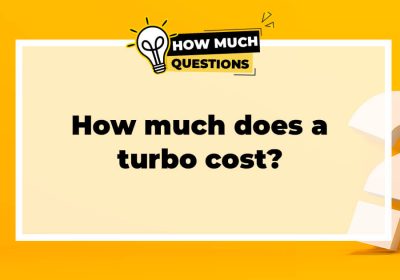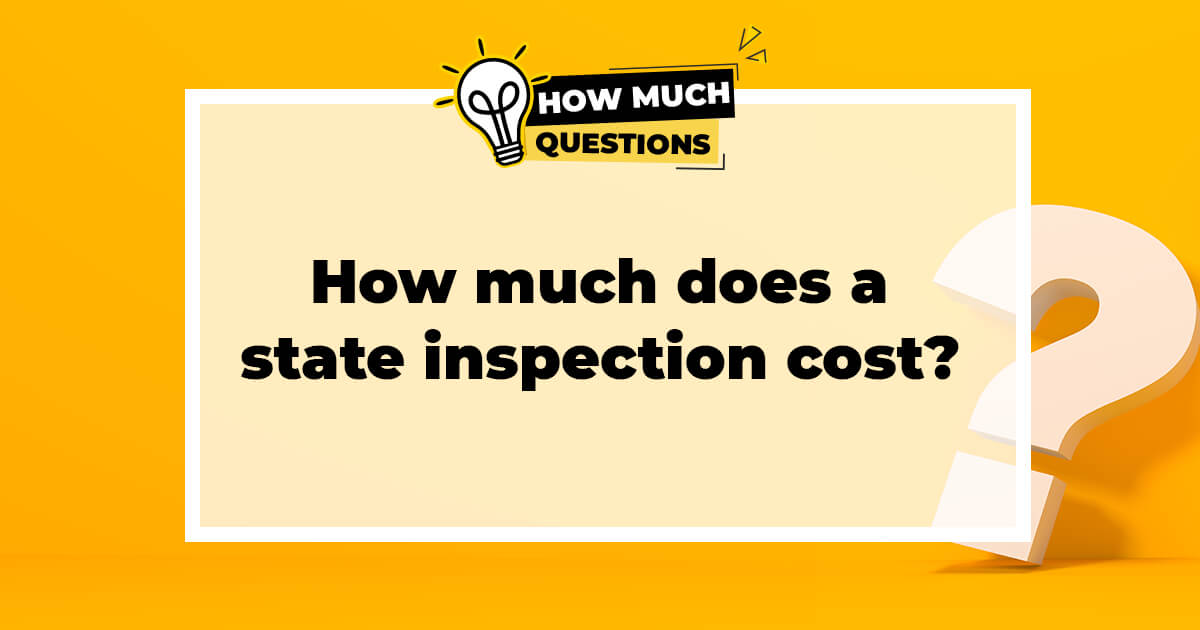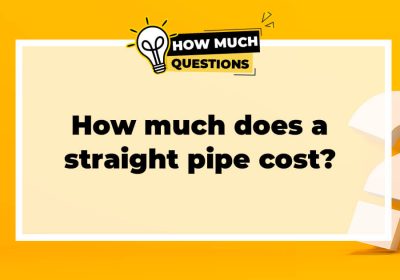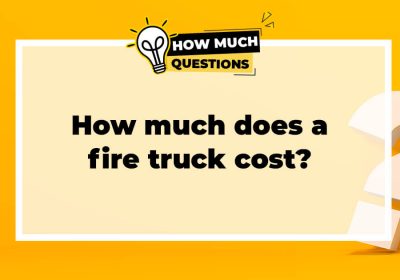
How Much Does a State Inspection Cost?
Wondering about the cost of a state inspection? Get insights on the factors influencing the price and discover cost-saving tips in this comprehensive guide.

Introduction
If you're a vehicle owner or planning to become one, understanding the cost of a state inspection is essential. State inspections are mandatory in many regions to ensure road safety and emissions compliance. In this guide, we'll break down the factors that influence inspection costs, provide pre-purchase considerations, and offer valuable tips to help you save money during the process. By the end, you'll be well-equipped to make informed decisions regarding state inspections.
How Much Does a State Inspection Cost?
The cost of a state vehicle inspection can vary widely depending on the state, county, and type of inspection required. In Texas, for example, the Department of Public Safety provides a breakdown of the maximum charges for each inspection type, and payments are made directly at the inspection stations. Companies like Firestone Complete Auto Care and Jiffy Lube offer state vehicle inspection services, but it's essential to call ahead to confirm availability and pricing at your local center.
It's crucial to note that vehicle inspection requirements are governed by each state individually, so it's important to check with your local authorities or service centers for the most accurate and up-to-date information.
For a more comprehensive understanding, you may also consult resources like Kelley Blue Book, which provides information on vehicle inspections by state.
Factors Influencing Cost
1. Vehicle Type and Size
The type and size of your vehicle play a significant role in determining the inspection cost. Larger vehicles or those with special equipment may require more extensive inspections, resulting in higher fees.
2. Emission Requirements
Emission standards can vary from state to state. Vehicles that don't meet these standards may require additional repairs or upgrades to pass the inspection, adding to the overall cost.
3. Inspection Type
The type of inspection your vehicle needs can impact the cost. Some states require only a safety inspection, while others also include emissions testing. Understand the specific requirements in your area.
4. Location
Inspection fees can differ by location. Urban areas tend to have higher costs due to increased demand and overhead expenses for inspection centers.
5. Vehicle Age
Older vehicles may require more extensive checks and repairs to meet state standards, potentially increasing the overall inspection cost.
6. Repairs and Reinspection
If your vehicle doesn't pass the initial inspection, you'll need to cover the cost of repairs and potentially a reinspection fee until your vehicle meets the necessary standards.
Pre-Purchase Considerations
Before scheduling a state inspection, consider these vital factors:
1. Local Regulations
Research the inspection requirements and regulations in your area. Familiarize yourself with the specific tests your vehicle will undergo.
2. Vehicle Maintenance
Regular maintenance can prevent costly surprises during inspections. Ensure your vehicle is in good working condition before the inspection date.
3. Emission Control
If your vehicle has emission-related issues, address them promptly to avoid additional expenses during the inspection.
4. Inspection Center Reputation
Choose a reputable inspection center known for fair pricing and honest assessments. Read reviews and ask for recommendations.
Cost-Saving Tips
Save money during your state inspection with these actionable tips:
1. DIY Pre-Inspection
Check your vehicle for common issues like faulty lights, worn tires, and damaged wipers. Fix minor problems yourself to reduce potential repair costs.
2. Shop Around
Compare inspection prices from different centers in your area. Don't hesitate to negotiate or ask for discounts.
3. Maintenance Records
Keep detailed records of your vehicle's maintenance and repairs. This can help prove that your vehicle is well-maintained, potentially reducing inspection costs.
Guidance for Optimal Choices
To make the best choices during your state inspection:
Consider regular vehicle maintenance to reduce potential repair costs and ensure your vehicle passes the inspection.
Research and understand your local inspection regulations to avoid any surprises.
Choose an inspection center with a reputation for honesty and fair pricing.
Conclusion
Understanding the factors that influence the cost of a state inspection is crucial for every vehicle owner. By following the pre-purchase considerations and cost-saving tips mentioned in this guide, you can save money and ensure your vehicle is roadworthy and compliant with state regulations.
This article is intended for informational purposes only. It is essential to seek professional advice and adhere to local regulations when scheduling and preparing for a state inspection. Always consult with certified inspection centers for the most accurate and up-to-date information.
FAQ: Frequently Asked Questions
How much does a state inspection cost on average?
The cost of a state vehicle inspection varies depending on the state, county, and type of inspection required. In some states like Texas, the maximum charges for each inspection type are provided by the Department of Public Safety. On average, you can expect to pay between $20 and $50 for a basic state vehicle inspection.
What types of inspections are there?
There are different types of state inspections, including safety inspections and emissions tests. The requirements for each type of inspection can differ from state to state. It's essential to check with your local authorities or service centers for the most accurate information.
Do all states require vehicle inspections?
Not all states require vehicle inspections. Requirements are governed by each state individually, so it's crucial to check the regulations in your specific state to determine if an inspection is necessary.
How often do I need to get my vehicle inspected?
The frequency of required state inspections varies by state. Some states require annual inspections, while others may require them every two years. Always check your state's specific requirements to ensure you are in compliance.
Where can I get my vehicle inspected?
Various service centers and specialized facilities offer state vehicle inspections. Companies like Firestone Complete Auto Care and Jiffy Lube are examples of places where you can get your vehicle inspected. Always call ahead to confirm availability and pricing.
What happens if my vehicle fails the state inspection?
If your vehicle fails the state inspection, you will typically need to make the necessary repairs and have the vehicle re-inspected within a certain time frame. Failure to do so may result in fines or other penalties.
Can I perform a state inspection myself?
No, state inspections must be performed by certified inspectors at approved facilities. Performing a state inspection yourself is not allowed and can result in penalties.
What documents do I need for a state inspection?
You will generally need to provide your vehicle's registration and proof of insurance when getting a state inspection. Some states may also require additional documentation, so it's best to check beforehand.
How long does a state inspection take?
A basic state inspection can take anywhere from 15 to 45 minutes, depending on the type of inspection and the facility. More comprehensive inspections may take longer.
Is there a grace period for expired state inspection stickers?
Some states offer a grace period for expired state inspection stickers, usually ranging from a few days to a month. However, driving with an expired inspection sticker can result in fines, so it's best to renew it as soon as possible.
If you want to know other articles similar to How Much Does a State Inspection Cost? you can visit the category Automotive Costs and Repairs.
- Introduction
- How Much Does a State Inspection Cost?
- Factors Influencing Cost
- Pre-Purchase Considerations
- Cost-Saving Tips
- Guidance for Optimal Choices
- Conclusion
- FAQ: Frequently Asked Questions
- How much does a state inspection cost on average?
- What types of inspections are there?
- Do all states require vehicle inspections?
- How often do I need to get my vehicle inspected?
- Where can I get my vehicle inspected?
- What happens if my vehicle fails the state inspection?
- Can I perform a state inspection myself?
- What documents do I need for a state inspection?
- How long does a state inspection take?
- Is there a grace period for expired state inspection stickers?
Leave a Reply







You might be interested in